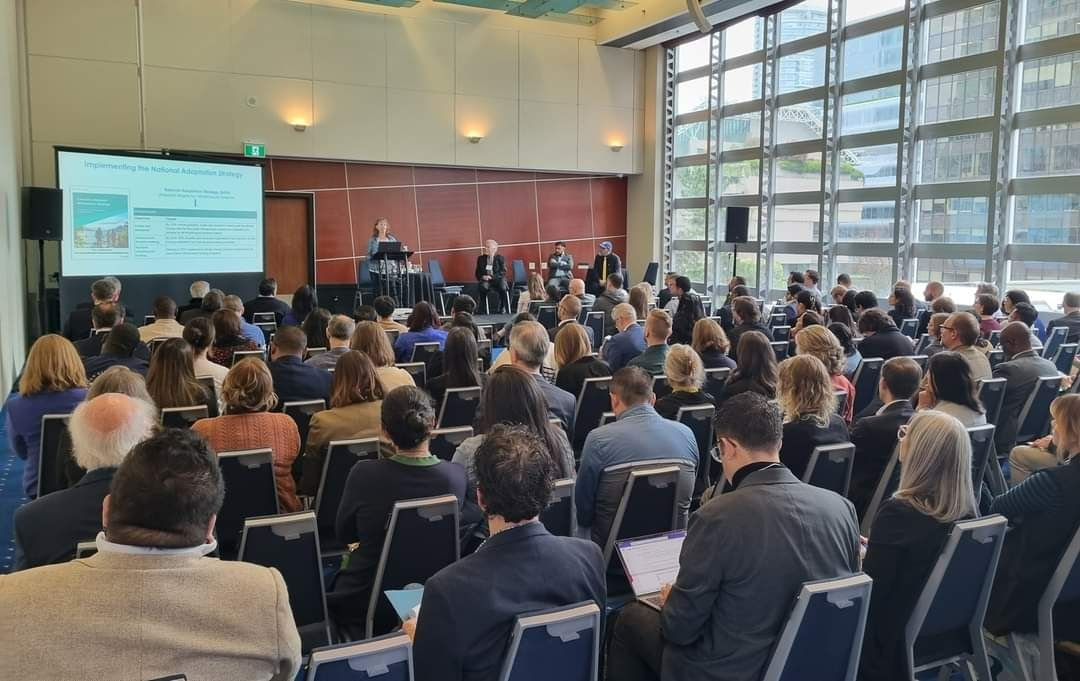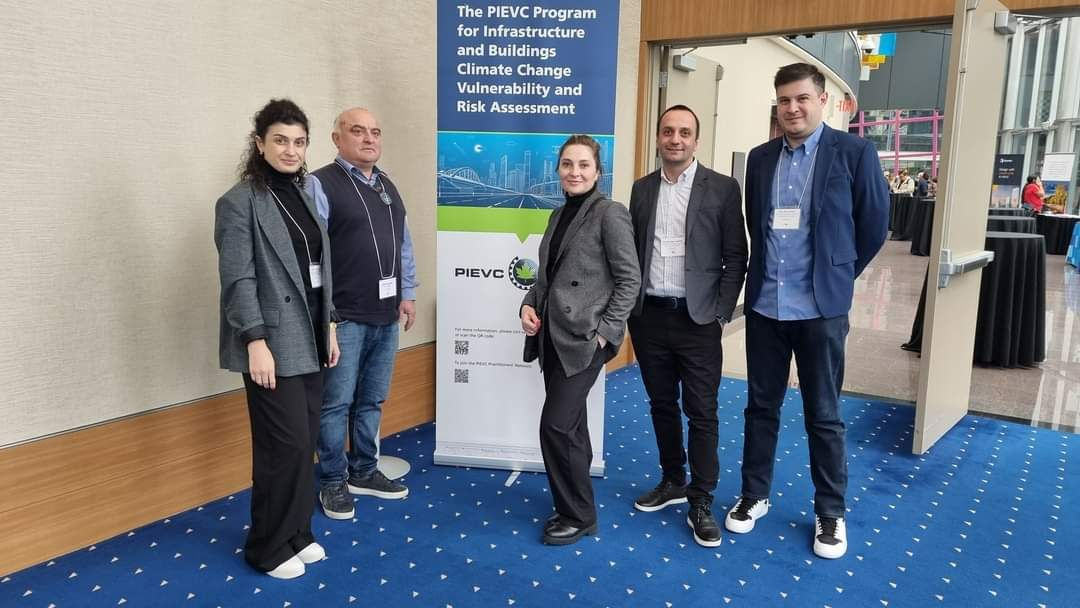Assessing the risks of climate change to infrastructure: Insights from Global Forum in Vancouver

To assess the vulnerability of road infrastructure in the regions Racha-lechkhumi and Kvemo Svaneti in Georgia, GIDRM has engaged in the application of the PIEVC Protocol (Protocol for Infrastructure Vulnerability Evaluation and Climate Change). Develop by the Institute for Catastrophic Loss Reduction (ICLR), the Climate Risk Institute (CRI) and GIZ, this tool is a comprehensive step-by-step framework to assess the vulnerability of infrastructure in the face of climate change. The protocol offers a structured approach to reviewing historical climate data, projecting future climate changes and events, estimating the severity of climate impacts, understanding infrastructure's adaptive capacity, and identifying high-risk components that require prioritization. Upon the completion of the assessment in Georgia, a report on the state of vulnerability will be published in September of 2023.
Supported by the GIZ project GIDRM, a Georgian delegation has participated in the Global Forum of the PIEVC Practitioners’ Network for Infrastructure Climate Change Risk and Vulnerability Assessments in Vancouver, Canada , 7 - 21. of April 2023. The event was hosted by CRI, together with the global project Enhancing Climate Services for Infrastructure Investments (CSI).
Among the Georgian delegation were representatives from the National Environment Agency (MEPA) and Roads Department (MRDI) accompanied by a colleague of the GIZ project Global Initiative on Disaster Risk Management (GIDRM).

©Otar Kurtsikidze, NEA
The primary objective of the forum was to explore international practices and experiences related to climate change challenges with a specific focus on infrastructure. Representatives from various countries shared their insights and approaches to addressing climate-related risks. The event underscored the significance of collaborative efforts, shared responsibility, and ongoing cooperation among decision-makers, communities, and stakeholders. Only based on collective efforts a safer and risk-informed future can be built, where the impact of natural hazards is minimized, infrastructure resilience is strengthened, and sustainable development is fostered.
The Georgian delegation had the opportunity to interact with working groups from other states and share valuable experiences on assessing natural geological processes in Georgia. Furthermore, they provided updates on ongoing large-scale infrastructure projects contributing to practitioners’ discussions from over 20 countries worldwide.
By participating in the Global Forum, Georgia demonstrated its commitment to addressing climate change risks, ensuring the resilience of critical infrastructure, and protecting the well-being of its population. The insights gained from this international platform will undoubtedly contribute to enhanced risk assessment practices and inform future decision-making processes. The application of the PIEVC Protocol offers a structured framework for evaluating infrastructure vulnerabilities, enabling effective risk management and risk-informed decision-making.

©Otar Kurtsikidze, NEA
Fostering a systemic understanding of risk
In Georgia, various natural hazards pose significant risks to the population and critical infrastructure. When extreme events occur, they can result in limited access to basic services due to blocked roads or disruptions in the energy and water supply. It is vital to acknowledge that the interconnection between critical infrastructure sectors such as water, energy, health, transportation, and governance exacerbates current and future risks.
There is a pressing need for a comprehensive understanding of the systemic nature of risks, not only among decision-makers but also within the communities. By introducing risk-informed development (RID) in Georgia, the following video highlights the importance of collective efforts, shared responsibility, and continuous collaboration between decision-makers, communities, and relevant stakeholders to build a safer and more risk-informed future.
